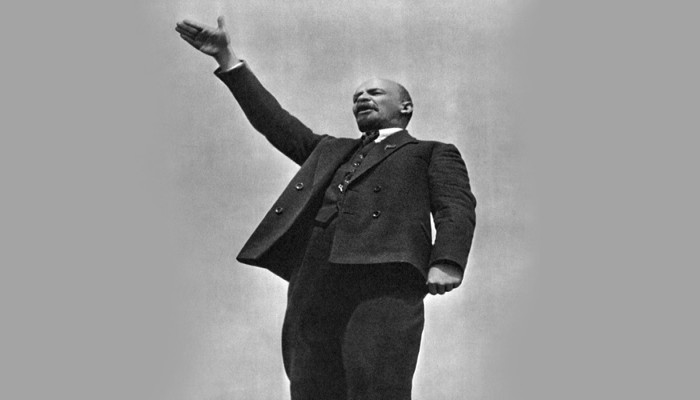100 years of Russian Revolution : from Lenin to Xi Jinping
- In History & Culture
- 12:23 PM, Nov 23, 2017
- Ranabir Bhattacharyya
A recent report by Global Terrorism Index (GTI), covering 163 countries, has highlighted that Maoists are responsible for more than half of the 340 deaths in 929 terror attacks in India in 2016. This isn't a random statistical data but just a glimpse of the legacy of radical Communists in India. A century back, Marxist Bolsheviks under Vladimir Ilyich Ulyanov alias Lenin's leadership got hold of Russia's imperialist capital, ushering the Bolshevik revolution. The Russian Revolution ushered in a new history of an unique global political order which theoretically called for socialism but symbolized a different form of dictatorial leadership where the dictators simply ruined the lives of millions with veiled principles.
It has been long eventful 100 years since the Leninist era - USSR has broken into several pieces, whereas USA is led by a business tycoon of the caliber of megalomaniac Donald Trump and the world considers Islamist aggression to be of similar danger apart from changing demands of capitalism. The red lettered days of Lenin, Stalin in the era of totalitarian regimes were no less than Hitler's regime where the power centres simply ignored the existence of an alternative narrative. No doubt, selective amnesia of the West regarding the rise of Communism can never be ignored either.
After all these years, it would be a historical mistake to consider Leninist era to that of Soviet Union or erstwhile USSR in the same line. What transformed as a peasant movement ultimately played a pivotal role to agrarian feudalism. Interestingly, the Russian revolution witnessed a counter revolution from the West and certainly Britain, France, US considered Communism to be a direct threat to their sole existence. The inclination of the East European countries towards Communism cannot be ignored either. On the other hand, Communism became popular in third world countries which got independence in the late 40's and early 50's. Certainly agrobased countries like India witnessed a communist upsurge but 'class struggle' became an individual rebel-plot for most of the pseudo-communist leaders. The transformation of China from the era of Mao Tse Tung to a capitalist one deserves special mention in this case.
Why did Communism collapse?
Truly, this has been the question of the era. There are various perspectives to explore the reasons behind such. Were people ready for a radical political alternative? In countries like India, the communists opted for a rebellious approach which ultimately paved the path for Naxal rebellion. The Naxal rebellion is considered as one of the worst phases of Indian politics along with the emergency era, which misguided poor peasants to a radical alternative, questioning the very existence of Indian democracy and ultimately resulted in red terror. Many economists believe that communism didn't give a feasible alternative to capitalism and ultimately communism got minimalized in pocket regions like Cuba, Venezuela and few other countries. Anyhow, one can never ignore the importance of Bolshevik Revolution which reshaped the destiny of the global world order from different aspects. Communism highlighted the loopholes which went unnoticed in the transformation from agro-based economy to an open economy in the globalized era. Certainly, the whole issue of labour rights or wage issues are regarded with due concern and stimulated a socialist mindset across various strata of society. Capitalism in the first world countries changed its stance in response to communist challenge. The ideas and theories of Karl Marx couldn't innovate self-sufficient economical perspective and also failed to appreciate changing demands in issues such as price determination, property rights which had direct impact on societal individuals. In other words, communists in most countries deviated from their principles and practiced their own way out to suit personal needs, which actually ruined Communism in the ideological level. In several countries, Communists resorted to violence and ultimately they lost the popular support or the empathy and thus ended the dreams of an impossible classless society.
Is Communism going to make a fight back against different forms of capitalism?
To be practical and from a neutral stance, it is indeed impossible for Communism to make dream comeback against capitalist forces prevalent in most countries of the world. Communism has been a socialistic experiment which failed in its implementation and ultimately didn't pave the path for a much needed transformation. The global workforce at present is witnessing yet another dramatic reality as robots are due to take up lion’s share of jobs all over the world, reaching the next level of scientific innovation. The whole concept of 'nation' has changed also. Nevertheless, social dynamics and the economics of public welfare will always be indebted to the core idea of Communism. Post globalization, Communism has failed to evolve from the four walls of theoretical studies or the posters of Karl Marx or Che Guevara or Fidel Castro and thus resorting to violence or suppression or cheap populism will never be able to bring Communism at the helm of affairs. But the core idea of Bolshevik aka Russian Revolution will remain as a historic reminder to capitalist forces and can ‘hopefully’ bring a subtle balance in a society.







Comments